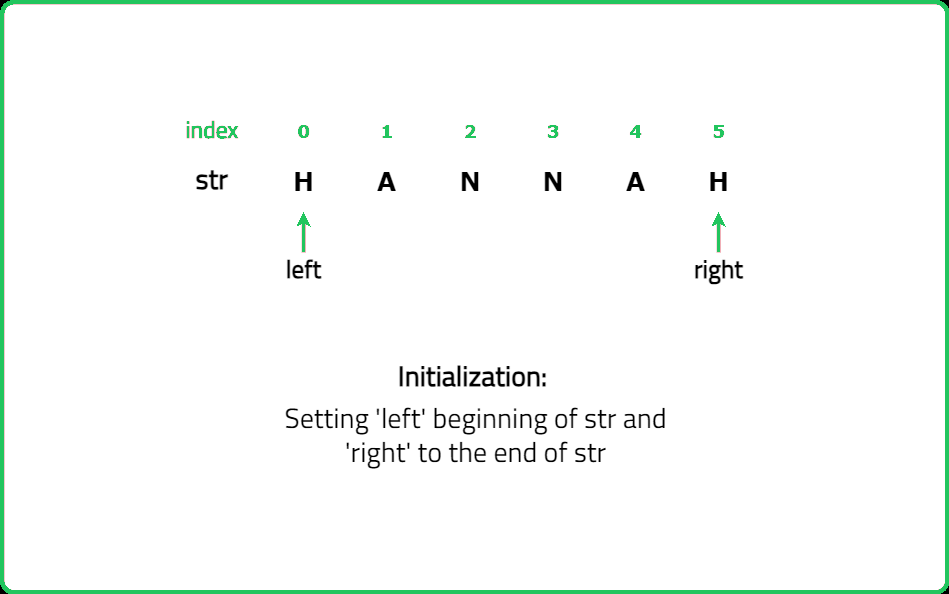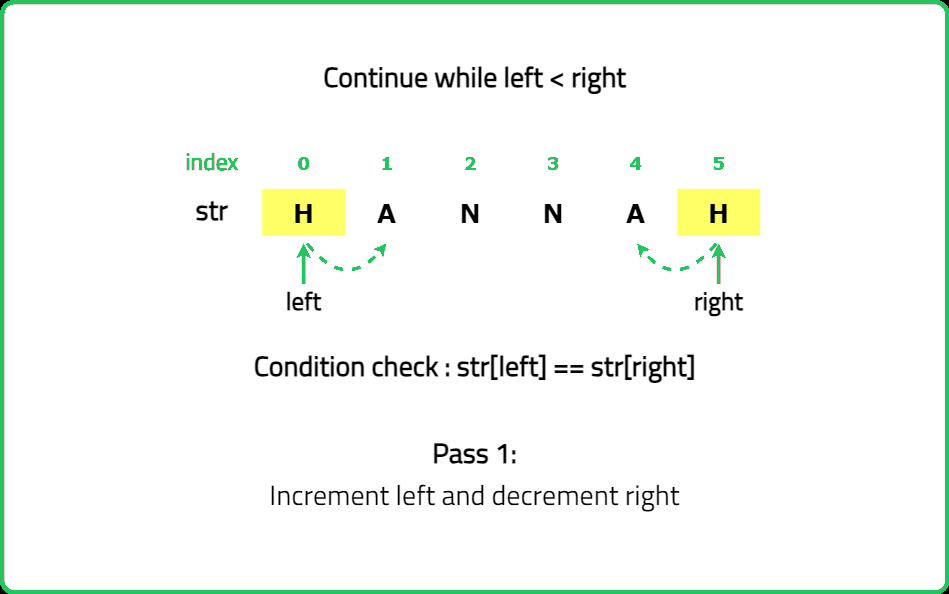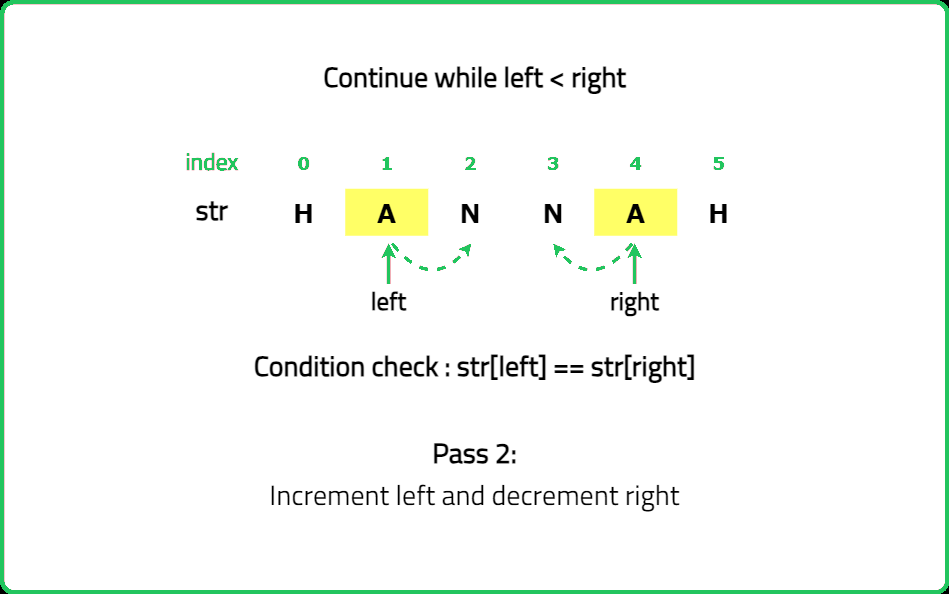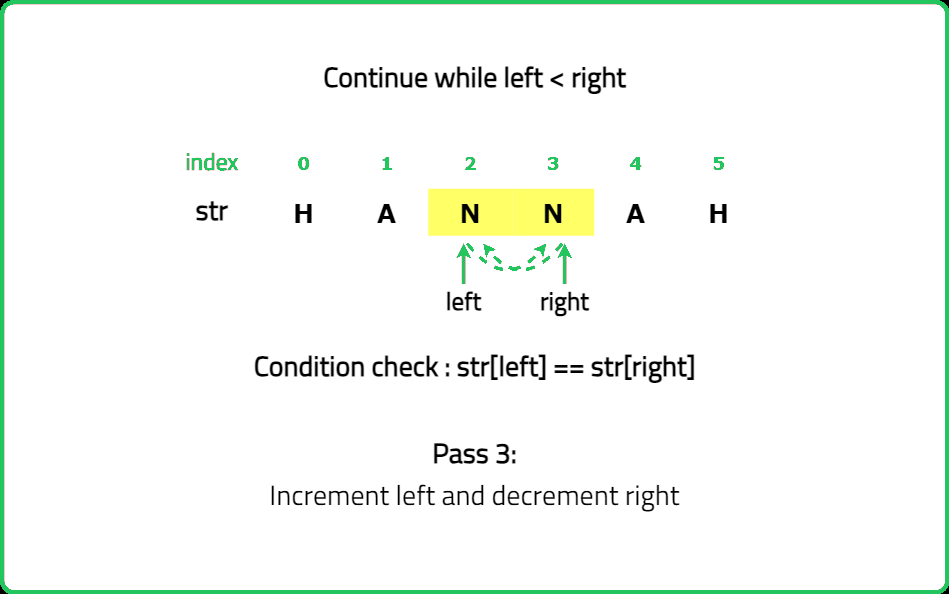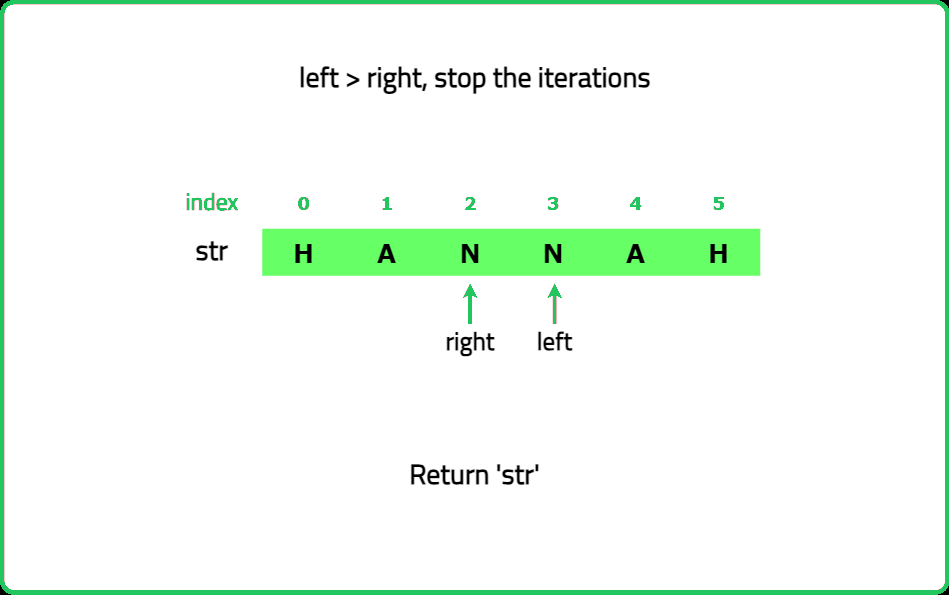Palindrome Check
Beginner Problems
Basic Strings
Easy
- Palindrome checking algorithms, similar to the problem statement, have interesting implications in the development of DNA sequence analysis tools used in Bioinformatics
- Since DNA can be read in both directions, identifying palindromic sequences is a key in the detection of special genetic markers called Restriction sites, essential in Genetic Engineering
- Even simple programming challenges have enormous potential in real world applications!
You are given a string s. Return true if the string is palindrome, otherwise false. A string is called palindrome if it reads the same forward and backward.
Examples:
Input : s = "hannah"
Output : true
Explanation : The given string when read backward is -> "hannah", which is same as when read forward.
Hence answer is true.
Input : s = "aabbaaa"
Output : false
Explanation : The given string when read backward is -> "aaabbaa", which is not same as when read forward.
Hence answer is false.
Input : s = "aabbccbbaa"
Constraints
- 1 <= s.length <= 105
- s consist of only uppercase and lowercase English characters.
Company Tags
TCS
Cognizant
Accenture
Infosys
Capgemini
Wipro
IBM
HCL
Tech Mahindra
MindTree
